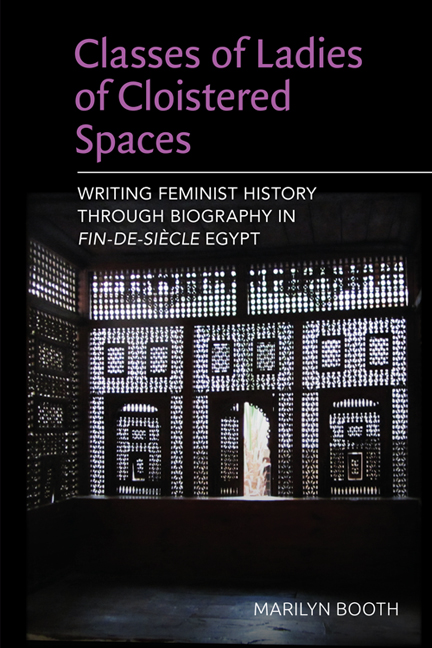Book contents
- Frontmatter
- Contents
- Acknowledgements
- Dedication
- I Pearls Scattered: An Introduction
- II A Women's World History, in the World of Arabic Letters: A Reader's View
- III Founding Mothers, Speaking Sisters: Lineaments of Community in History
- IV Writerly Pursuits: A Compiler's Archive
- V A Beckoning Compass, Circulating Lives: The Bustani Encyclopedia and Other Nineteenth-century Sources
- VI Interlocutors? Men Authoring Women's History in the 1890s
- VII Framing a History of the Present: or, Did the Pearls Scatter to the World's Fair?
- VIII Violent Romances: The Bodily Drama of Patriarchal Trauma
- Conclusion: A World of Women, Feminist History and the Importance of the Feminine Signature
- Appendix I: Translations
- Appendix II: List of Fawwaz's Pearls
- Notes
- Bibliography
- Index
IV - Writerly Pursuits: A Compiler's Archive
Published online by Cambridge University Press: 05 August 2016
- Frontmatter
- Contents
- Acknowledgements
- Dedication
- I Pearls Scattered: An Introduction
- II A Women's World History, in the World of Arabic Letters: A Reader's View
- III Founding Mothers, Speaking Sisters: Lineaments of Community in History
- IV Writerly Pursuits: A Compiler's Archive
- V A Beckoning Compass, Circulating Lives: The Bustani Encyclopedia and Other Nineteenth-century Sources
- VI Interlocutors? Men Authoring Women's History in the 1890s
- VII Framing a History of the Present: or, Did the Pearls Scatter to the World's Fair?
- VIII Violent Romances: The Bodily Drama of Patriarchal Trauma
- Conclusion: A World of Women, Feminist History and the Importance of the Feminine Signature
- Appendix I: Translations
- Appendix II: List of Fawwaz's Pearls
- Notes
- Bibliography
- Index
Summary
Woodhull's story, like that of ‘Raziyya Queen of Delhi in the Land of India’ and many others as told in Pearls Scattered, raises questions about the author's sources and informational and rhetorical silences in her biographies. For example, Raziyya's life as a Pearl does not address the possibility that Raziyya's father selected her unequivocally as his direct successor, and yet this seems a detail that would appeal to Fawwaz had she known of it. On the other hand, the dramatic quality of Raziyya's standoff with her brother conforms to other entries (including Woodhull's) in heightening the heroic tone of these women's life histories. This chapter focuses on Fawwaz's use of premodern sources, singling out only a few, to argue that while she relied heavily on these sources for information and narrative structure, she regrouped information to create new narratives that put women at the centre of their stories, which also foregrounded the themes highlighted in previous chapters. Basing her work on the prosopographical model that earlier Arab biographers had developed, she brought in material from other types of sources to create her portraits. Furthermore, her choices were governed to some extent by gendered constraints that shaped her research.
To what extent did Fawwaz select, rewrite and edit? Had she commanded a wider range of sources, might some narratives read differently? We cannot know, nor can we trace sources for every entry. Within biographies, occasionally Fawwaz mentioned her source. For instance, she drew several short vignettes wholly from anecdotes recorded by the indefatigable fourteenth- century traveller Ibn Battuta, who related meeting with elite women and expounded on their learning, visibility and easy conversation. Fawwaz mentions the traveller in some of these vignettes. Ibn Battuta's account of Sultan Muhammad Uzbek Khan's court depicts the hospitality of his consorts and his daughter, as well as his ‘astonishing, excellent’ arrangement at Friday audiences. Ibn Battuta details the sultan's ritual of standing to greet female family members whereupon they sat beside and around him, ‘all of this in full view of people, without any curtain’.
- Type
- Chapter
- Information
- Classes of LadiesWriting Feminist History through Biography in Fin-de-siecle Egypt, pp. 124 - 152Publisher: Edinburgh University PressPrint publication year: 2015



